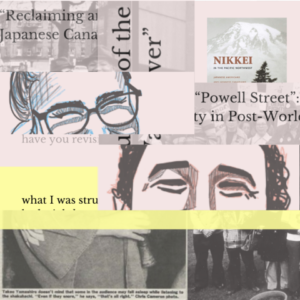Join the Counter-Memory Activism research cluster for Creative Counter-Memorializations: A Symposium/Gathering this November 24-27. The symposium will feature a wide variety of artistic and scholarly responses to difficult and contested histories, ranging from art exhibitions, dance pieces and movement workshops, to academic panels on comparative genocides. A number of artists, activists and scholars, will be featured including Kanien’kehá:ka curator Ryan Rice, Dr. Amber Dean on settler-colonial structural violence, and African-Canadian performers Liliona Quarmyne and Diane Roberts. We are committed to an inclusive, collaborative, and more radical approach to visualising public memory and commemoration.
The programming will be based in Kjipuktuk (Halifax, Nova Scotia), the unceded and ancestral territory of the Mi’kmaq, with several events accessible virtually. Detailed accessibility information is available for each event. Please email countermemoryactivism@gmail.com for any additional questions and concerns.
Events Taking Place at King’s – November 25
1:00 – Panel #1: “Representing the Holocaust in Second and Third Generation Contexts” with Dr. Chris Elson, Isabel Cout, Leanne Lieberman and Dr. Victoria Aarons.
Dr. Elson (professor of French at Dalhousie) and Cout (teacher and graduate student) are a team of co-translators who have proposed a panel discussion that will be a continuation of reflections on their current work translating the novels of young Franco-Argentinian novelist Frédérika Amalia Finkelstein. Finkelstein’s first novel in particular, Forgetting (to be published in English translation by Deep Vellum press in Fall 2022), is striking in its engagement with the Shoah, taking up the activities of memory and memorialization from a radically unconventional third-generation perspective. Finkelstein shocks her readers when her character expresses sentiments that have become deeply taboo. On the very first page of Forgetting—which is dedicated to her grandfather, himself a survivor—she writes: “I say this without shame: I want to forget, to annihilate that vile Shoah from my memory, and to extract it from my brain like a tumor. I want the abyss of History to swallow it forever.” Elson and Cout propose to situate Finkelstein within a growing conversation about expressions of ambivalent or heterodox relationships to intergenerational traumatic memory that seek to unseat, or at the very least, to complicate the dominant narrative with regards to the work of remembering or carrying difficult history.
2:00 – Reception
3:00 – Panel #2: “Creative Counter-Memorializations as Responses to Structural Violence” with Dr. Amber Dean, Dr. Orly Lael Netzer, Angela May, and Carly Ciufo.
If remembering the past involves commemorating violent events, but settler colonialism is a structure and not an event, then how might we learn to read efforts to remember—including (counter-)memorials and (counter-)museums—for the structural violence that they reveal? Might memorials that recall a past event, but neglect to attend to the ongoing structures of violence risk situating the forms of violence commemorated too firmly in the past? If so, is attending to structural violence a key element of what allows counter-memorialization to intervene in contexts of ongoing settler colonialism? In this panel, each presenter will offer a brief provocation from their research on counter-memorial forms to invite a discussion with the audience about why counter-memorialization matters.

Image created by Angela May, dear community promotional collage, July 2021, digital collage
